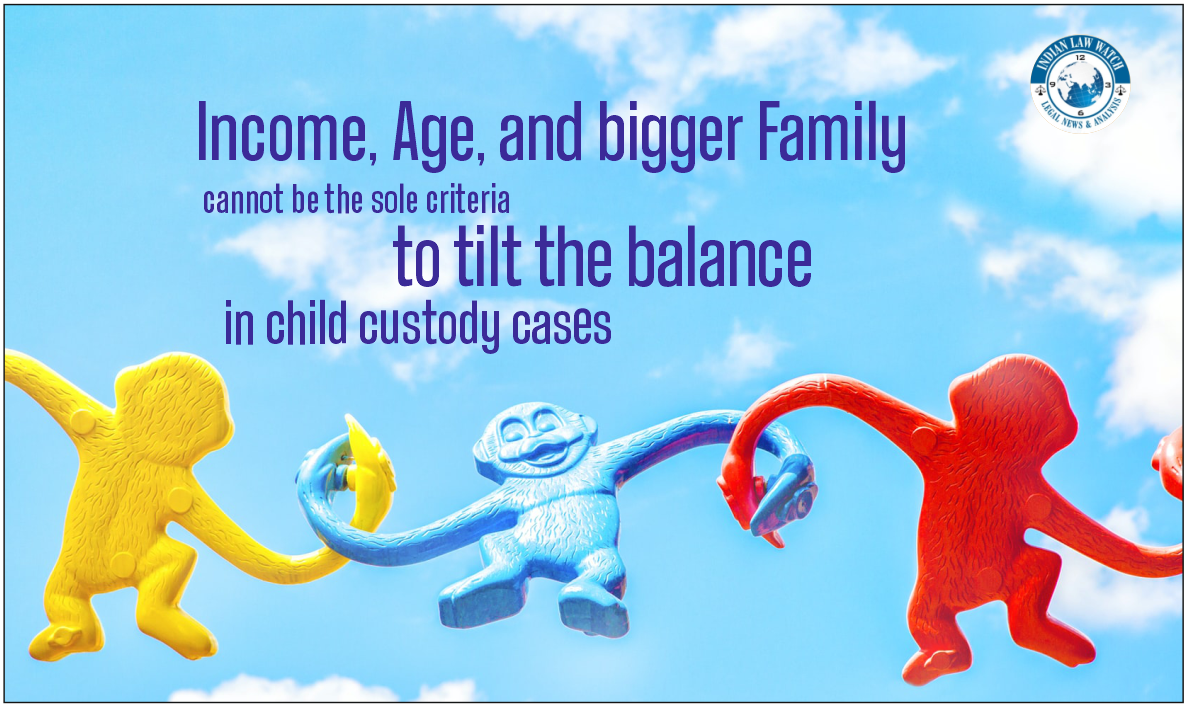

In Swaminathan Kunchu Acharya v. State of Gujarat, Cr. A 898/2022 the Supreme court while hearing an appeal regarding custody of a minor child observed that income, age, and bigger family cannot be the sole criteria to tilt the balance in child custody cases.
In this case, the child lost both his parents during the second wave of COVID-19. The paternal grandfather (appellant) of the boy approached the High Court via a writ of habeas corpus alleging that the boy’s maternal aunt (respondent) is not allowing the grandparents to enter the house of their son and daughter-in-law. Moreover, she is not even allowing them to meet their grandchild. High Court disposed of the petition and also gave the custody of the child to the respondent. Thereafter, the appellant approached the Supreme Court contending that merely because he is aged 71 years and his wife is aged 63 years, it cannot be presumed that he is not in a position to take better care of the child. Moreover, the respondent resides in a village whereas the appellant is living in Ahemdabad (a metro city). It was contended by the respondent that she is a government servant with a good income, whereas the grandfather is retired and is living on a pension.

The Apex Court observed that it cannot be presumed that being a young unmarried woman with a bigger family and better income, the respondent will take better care than the grandparents. In Indian society, it is believed that the paternal grandparents would always take better care of their grandson and their capacity and/or the ability to take care of their grandson should not be doubted. It is said that the grandparents love the interest rather than the principle, as they are more attached emotionally to grandchildren.
The Court further observed that the minor will get a better education in Ahmedabad, which is a Metro City compared to the education in Dahod. Being a retired person, the paternal grandparent would devote more time and take care of the minor better than the respondent who is serving in the government department.
Based on these observations, the court set aside the High Court order and handed over the custody of the boy to the grandparents, and concluded that income and/or the age and/or the bigger family cannot be the sole criteria to tilt the balance and not to give the custody of the grandson to the paternal grandparents.







